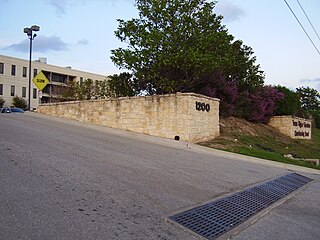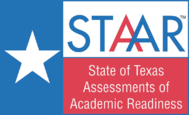Related Research Articles
Science education is the teaching and learning of science to non-scientists, such as school children, college students, or adults within the general public. The field of science education includes work in science content, science process, some social science, and some teaching pedagogy. The standards for science education provide expectations for the development of understanding for students through the entire course of their K-12 education and beyond. The traditional subjects included in the standards are physical, life, earth, space, and human sciences.
In the United States education system, social studies is the integrated study of multiple fields of social science and the humanities, including history, geography, and political science. The term was first coined by American educators around the turn of the twentieth century as a catch-all for these subjects, as well as others which did not fit into the traditional models of lower education in the United States, such as philosophy and psychology. One of the purposes of social studies, particularly at the level of higher education, is to integrate several disciplines, with their unique methodologies and special focuses of concentration, into a coherent field of subject areas that communicate with each other by sharing different academic "tools" and perspectives for deeper analysis of social problems and issues. The social studies aims to train students for informed, responsible participation in a diverse democratic society. The content of social studies provides the necessary background knowledge in order to develop values and reasoned opinions, and the objective of the field is civic competence.

A standardized test is a test that is administered and scored in a consistent, or "standard", manner. Standardized tests are designed in such a way that the questions, conditions for administering, scoring procedures, and interpretations are consistent and are administered and scored in a predetermined, standard manner.

In education, a curriculum is broadly defined as the totality of student experiences that occur in the educational process. The term often refers specifically to a planned sequence of instruction, or to a view of the student's experiences in terms of the educator's or school's instructional goals. A curriculum may incorporate the planned interaction of pupils with instructional content, materials, resources, and processes for evaluating the attainment of educational objectives. Curricula are split into several categories: the explicit, the implicit, the excluded, and the extracurricular.
The National Science Education Standards (NSES) represent guidelines for the science education in primary and secondary schools in the United States, as established by the National Research Council in 1996. These provide a set of goals for teachers to set for their students and for administrators to provide professional development. The NSES influence various states' own science learning standards, and statewide standardized testing.

The Texas Assessment of Knowledge and Skills (TAKS) was the fourth Texas state standardized test previously used in grade 3-8 and grade 9-11 to assess students' attainment of reading, writing, math, science, and social studies skills required under Texas education standards. It is developed and scored by Pearson Educational Measurement with close supervision by the Texas Education Agency. Though created before the No Child Left Behind Act was passed, it complied with the law. It replaced the previous test, called the Texas Assessment of Academic Skills (TAAS), in 2002.

The Texas Education Agency (TEA) is the branch of the government of Texas responsible for public education in Texas in the United States. The agency is headquartered in the William B. Travis State Office Building in downtown Austin. Mike Morath, formerly a member of the Dallas Independent School District's board of trustees, was appointed commissioner of education by Texas Gov. Greg Abbott on Dec. 14, 2015, and began serving on Jan. 4, 2016.
The USMLE-Step 2-CK is the nine-hour-long multiple-choice portion of the second part of the United States Medical Licensure Examination. It assesses clinical knowledge through a traditional, multiple-choice examination. In contrast to the USMLE Step 1, the focus is much more on clinical application of medical knowledge. It assesses the ability to apply medical knowledge, skills, and understanding of clinical science essential for the provision of patient care under supervision. The USMLE Step 2 is generally taken during the 4th year of medical school by medical students. From January 2010, to take the exam in North America the registration fee is $645 for students attending medical colleges in the United States and $850 for medical students from other countries. There are additional charges for applicants who choose a testing region outside the United States or Canada.
The New Jersey Assessment of Skills and Knowledge (NJASK) was a standardized test given to all New Jersey public-schooled students in grades 3-8 during (usually) March, April, or May, and was administered by the New Jersey Department of Education.

Homeschooling in the United States of America constitutes the education of about 3.4% of U.S. students as of 2012. The number of homeschoolers in the United States has increased steadily over the past few decades since the end of the 20th century. In the United States, the Supreme Court has ruled that parents have a fundamental right to direct the education of their children. The right to homeschool is not frequently questioned in court, but the amount of state regulation and help that can or should be expected continues to be subject to legal debate.
In an educational setting, standards-based assessment is assessment that relies on the evaluation of student understanding with respect to agreed-upon standards, also known as "outcomes". The standards set the criteria for the successful demonstration of the understanding of a concept or skill.

Texas has over 1,000 public school districts—all but one of the school districts in Texas are independent, separate from any form of municipal government. School districts may cross city and county boundaries. Independent school districts have the power to tax their residents and to assert eminent domain over privately owned property. The Texas Education Agency (TEA) oversees these districts, providing supplemental funding, but its jurisdiction is limited mostly to intervening in poorly performing districts.
Learning standards are elements of declarative, procedural, schematic, and strategic knowledge that, as a body, define the specific content of an educational program. Standards are usually composed of statements that express what a student knows.
Asherton Independent School District was a public school district based in the community of Asherton, Texas (USA).
The Test of Essential Academic Skills is a standardized, multiple choice exam for students applying for nursing school in the United States. It is often used to determine the ability of potential students to adjust to a nursing program. The test is created and administered by Assessment Technologies Institute. The test can be taken as a proctored exam at an educational institution that offers it or as a remote-proctored test through ATI.

The State of Texas Assessments of Academic Readiness, commonly referred to as its acronym STAAR, is a series of standardized tests used in Texas public primary and secondary schools to assess a student's achievements and knowledge learned in the grade level. It tests curriculum taught from the Texas Essential Knowledge and Skills, which in turn is taught by public schools. The test used to be developed by Pearson Education every school year, although the most recent contract gave Educational Testing Service a role in creating some of the tests, under the close supervision of the Texas Education Agency.

An elementary school is a primary school which is the main point of delivery of primary education in the United States, for children between the ages of 5–11 and coming between pre-kindergarten and secondary education.
A high school diploma is a North American academic school leaving qualification awarded upon high school graduation. The high school diploma is typically obtained after a course of study lasting four years, from grade 9 to grade 12. The diploma is awarded by the school in accordance with the requirements of the local state or provincial government. Requirements for earning the diploma vary by jurisdiction, and there may be different requirements for different streams or levels of high school graduation. Typically they include a combination of selected coursework meeting specified criteria for a particular stream and acceptable passing grades earned on the state exit examination.
Donna Bahorich is a member of the Texas Historical Commission and a former member of the Texas State Board of Education (TXSBOE), serving as Chair from June 2015 - September 2019. She was elected to the 15-member TXSBOE board in 2012 and 2016.
References
- ↑ "What is TEKS?". Texas A&M University. 20 July 2011. Archived from the original on 20 July 2011.
- ↑ "Texas Essential Knowledge and Skills". tea.texas.gov. Retrieved 2016-01-18.